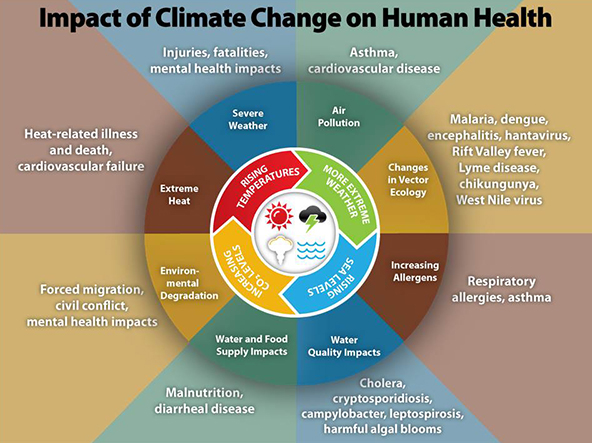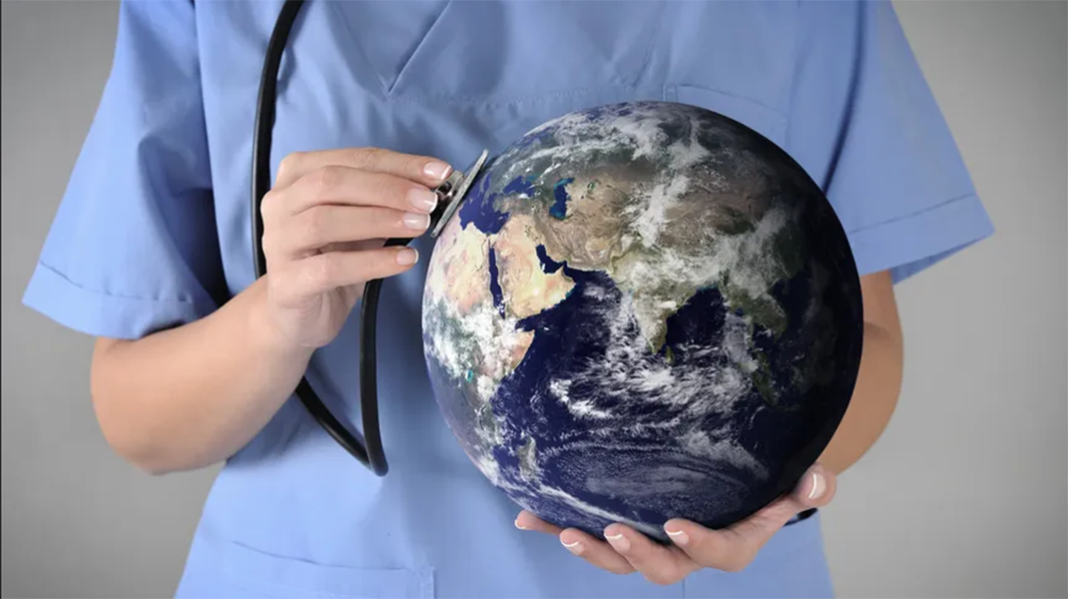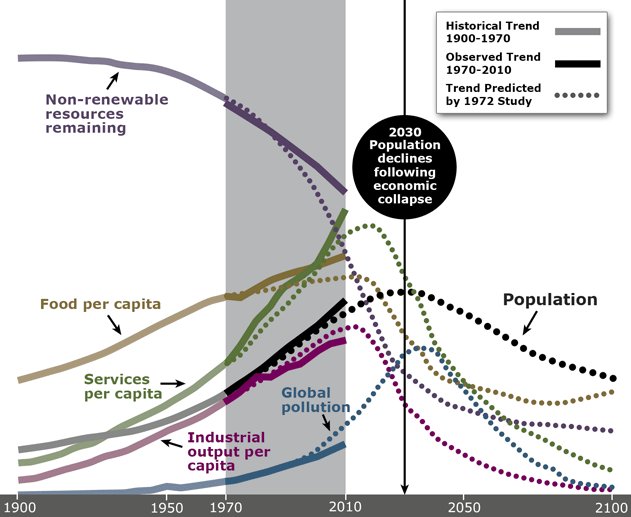This column presents an opportunity to open up discussion and debate within Médecins du Monde around our responsibility as an organisation towards climate change, and the form that our response to this global issue could take.
We can no longer consider these issues to be marginal to our priorities
We were deeply concerned by the information we received on the environmental emergency at the Autumn Humanitarian Conference in September 2019. We nevertheless returned from that event with determination and ready to take action, to communicate this crucial information in as many ways as possible and determined that this great organisation of ours, which is a powerful instrument of action and commitment, should be transformed in light of this global challenge.
In the face of climate change and the risk of collapse, public authorities, researchers, NGOs and citizens all have a role to play. This emergency is a global one and requires solidarity between nations.
As a local and international solidarity organisation, we can no longer consider these issues to be marginal to our work.
Médecins du Monde must confront this challenge head on and ensure these issues are at the very heart of our organisation. We must raise questions and transform our vision, our strategy, our operational directions and the ways in which we respond to this environmental emergency.
This context of climate chaos is already having serious effects on health and projections for the future are alarming
Over recent decades, all the environmental warning signs have turned red: sea levels have risen, living species have disappeared, forests have been destroyed, pollution has reached dramatic levels, water shortages abound, the poles are melting at an accelerating rate and, of course, the planet is heating up.
The scientific community is unanimous on the scale of the destruction of our planet and its acceleration and has called for significant measures to drastically reduce greenhouse gas emissions in the coming decade.
This context of climate chaos, caused by human activity, is already having serious effects on health and projections for the future are alarming. All countries are concerned, from north to south, and they must adapt even more to protect their populations, especially the most vulnerable, who will be most severely and durably affected.
Climate change has several different effects on health:
– Malnutrition and under-nutrition due to drought (reduced agricultural yields) and very sharp increases in food prices as a result of extreme weather events;
– Mortality and morbidity due to increasingly frequent and intense extreme events around the world: heat waves, floods, droughts, fires, landslides, etc.;
– Mortality and morbidity linked to infectious diseases: vector-borne infections (spread of mosquitoes carrying malaria, dengue fever, etc., melting of the Arctic permafrost which will lead to the regeneration of bacteria which are currently buried), infections from food and water (diarrhoea, gastroenteritis, cholera, etc.), restricted access to water (shortages in cases of drought, contamination in cases of flooding, etc.);
– Post-traumatic stress related to extreme events and migratory phenomena; psychological or existential distress caused by past or future environmental changes: stress, depression, risk of suicide, addiction, solastalgia (this concept forged in the 2000s by the US philosopher G. Albrecht from the words “solace”, “desolation” and “nostalgia”. The terms “eco-anxiety” and “climate anxiety” have also since appeared) etc.
– Respiratory diseases related to air pollution (which increase with temperature), increased asthma and allergies (increased CO2 and pollen concentrations), exposure to toxic chemicals, etc.
– Violence and water stress due to climate conflicts, water and food shortages and migration: nomadic populations in the Sahel, pastoralists in Niger, dry corridors in Central America (in Honduras for example).
– Climate migrants: health effects of climate change due to massive population displacements (flood-related migration, drought; migration to slums, etc.)

Climate change is the greatest global threat to public health in the 21st century (source: The 2018 report of the Lancet Countdown on health and climate change) and its cost can be seen in terms of emergencies, epidemics, deaths, etc.
Moreover, its effects have and will continue to have a greater impact on the most vulnerable populations, giving concrete expression to the concept of climate injustice:
– Abroad: coastal inhabitants threatened by rising sea-levels, inhabitants of countries with high seismic risk, inhabitants of slums and megacities, migrants, etc.
– In France: increased risk of cancer among farmers, vulnerability of residents on the outskirts of cities during peaks in fine particle pollution, and the social isolation of the elderly as an aggravating factor during heat waves.
Populations in developing countries, including those in small island states, arid or high mountain areas, and densely populated coastal areas (28% of the population) are considered particularly vulnerable.
The risk of systemic collapse emerges due to the interconnection of the crises and a domino effect
Reports from the IPCC and the UN have warned of the acceleration of climate change and the critical stage that humanity is at, particularly regarding the depletion of the natural resources needed for industrial and technological development. This awareness and these warnings, combined with an analysis of the current global system, reinforce the possibility of a global systemic collapse.
The decline in energies, in an increasingly globalised and resource-hungry world, will most likely lead to disruptions in supply and thus threaten the survival of our species.
“Irreversible consequences for society (…), triggered by a stock market crash, a natural disaster or the collapse of biodiversity …” (Pablo Servigne).
The collapse may occur, among other things, because of the level of interdependence between states and populations and the complexity of the organisation of societies as we know them. It is the interconnection of the predicted crises that will lead to a domino effect.
The decline of fossil fuels combined with climate change and its consequences therefore raises the risk of deep systemic social, economic and political crises.
However, the consequences on population health induced by climate change and the risk of collapse go far beyond the physical and psychological health of individuals. They affect health as Médecins du Monde conceives of it, i.e., from a perspective of a comprehensive well-being. The major disasters that have been predicted jeopardise the conditions that are essential to this state of well-being, including peace, the rule of law, the circulation of reliable and high-quality information and, more generally, the fabric of society.
All Médecins du Monde’s strategic decisions must urgently take environmental issues into account, in France and abroad
It seems to us that considering climate change and the environmental challenges the world is facing, Médecins du Monde needs to adjust its priorities and the ways in which it operates.
Climate change should not be a specific thematic area or priority within the Strategic Plan but should be an overarching issue that MdM mainstreams into all its dimensions, leading to a new paradigm.
All Médecins du Monde’s strategic decisions must now take environmental issues into account. Not only MdM operations but also support services and directorates will be affected by the future environmental crises. The organisation must, therefore, make strategic choices to prepare for the various scenarios involving climate crises and resource shortages.
For these issues to be effectively centralised and for them to become the lens through which we approach all our reflections and our work, it is of course essential that all members of the Médecins du Monde community, particularly decision-makers, are aware of these issues so that they are able to make appropriate choices.
The transformation that must take place will involve strengthening some of our current practices but also developing new practices or ways of working.
It must also involve decisions concerning our internal organisational methods such as regionalisation and decentralisation, decisions on data collection methods and operational strategies in France and abroad.
Strengthening our expertise in terms of intervening with communities, local actors and local civil society both in France and abroad
Our core values and intervention strategies are in line with the issues raised by climate change and the risk of collapse. The principles that we defend and implement, including coalitions of common causes and the localisation of aid, capacity, and empowerment or community health, are real assets.
Indeed, these intangible objectives, which place people at the centre of decisions that concern them, and which aim to develop individual and collective skills, are concrete ways in which we can prepare for a post-collapse world, both in France and abroad.
This expertise will be at the heart of the sector’s response, both internationally and in France, potentially lacking any other means of action.
It is a question of continuing to develop these skills and showcasing these distinctive elements.
Increase the level of expertise and visibility of MdM France with the support of the environmental health’s group and projects’
Environmental health is one of Médecins du Monde France’s thematic areas. Although it is not a response to climate change, it addresses the toxic environments in which the most vulnerable populations are forced to live. This theme is an important operational response from our organisation to the deterioration of human environments. This theme should be strengthened, which represents a strong internal stake. Beyond feeding project-specific advocacy elements, they could also collect broader data on environmental health issues (collection of targeted data, collection of testimonies and experiences, mapping), increasing MdM France’s level of expertise on these issues, and improving its visibility as a relevant stakeholder.
Our intervention strategies on all continents must take greater account of environmental issues and risks, and even maybe including the risk of collapse on every continent
In July 2019, as part of the work on the “operational trajectory” of international operations, the Board prioritised the subject of climate change as a cross-cutting issue to be implemented.
In particular, we could help to strengthen community resilience by building local capacity, by building up stocks, both “tangible” and “intangible” in the form of skills and know-how, by aiming to strengthen local health systems or combining emergency preparedness and disaster risk reduction approaches, thus contributing to the construction of a post-thermo-industrial world.
Develop strong advocacy in a joined-up approach with existing movements and other MdM
First of all, it would appear to be necessary to increase our internal global skills on the subject, to build expertise and legitimacy in order to be present, identified and recognised as a leader on this issue. Secondly, we could also take a more public stance on environmental issues, through the prism of global health.
But this will also involve denouncing the causes of climate change, taking a policy position on these causes and possible responses in order to help limit the effects of climate change on health. As a medical NGO, we have a strong impact through the voices of carers as well as by relaying existing scientific analyses.
The 16-strong Médecins du Monde network has already identified these issues as priorities for 2020 and 2021. It is a great opportunity to work at a very early stage with the network on this subject, to feed our reflections into the network but also to benefit from the knowledge and contacts of other MdMs as well as from the sounding board that the network represents. It may even be possible, thanks to this dynamic network, to build a common position among the network members that would then have to be applied in the different MdMs.
At the same time, it is essential to join the existing movements within French and international NGOs to enable the sharing of information, tools and know-how and that are a source of expertise. It is not, however, necessary to become climate change specialists and this is not our ambition for MdM. It is a priority issue impacting health and social justice on which medical NGOs have a role to play and current coalitions are not always able to communicate on specific health issues.
Finally, the development of an internal position, strong advocacy and, more broadly, a Médecins du Monde identity on this subject is also conducive to generating specific funding opportunities to which we currently do not have access.
Transforming Médecins du Monde into an environmentally responsible association
Environmental responsibility aims to reduce the environmental impacts related to our activities and our organisation, or even to integrate environmental protection measures. For Médecins du Monde it is, therefore, a question of reducing our ecological footprint without harming our social mission. This approach involves reviewing our methods of action, in particular through transport, communication and logistics policies adapted to this challenge. This concerns all Médecins du Monde actors and these policies should be binding in order to be effective.
Environmental responsibility is being demanded of the organisation by the teams and a multidisciplinary group of volunteers was formed during the 2019 Mission Days; it also responds to an increasingly strong demand from donors. A more global policy driven by headquarters must harmonise, replicate and disseminate the initiatives that have already emerged in the field.
In line with the requests made by the teams regarding MdM’s commitment to the environment during the 2019 Mission Days, we feel it would be appropriate for the 2020 General Assembly forum to focus on the climate emergency so that members of the Médecins du Monde community can take part in discussions and debates and show that after 40 years of fighting, Médecins du Monde is still as much in touch with the public health issues of its time as it ever was.
Médecins du Monde must face up to the environmental challenges and the major risks they represent for populations and their health. This issue should now become central to the organisation and should be at the heart of our decisions and our work so that we can have a real impact now and in the future. The history, identity and mandate of the organisation are strengths that Médecins du Monde have to initiate the necessary transformation and respond to this major challenge.



